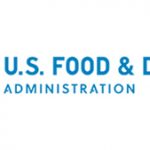Determining the correct regulatory pathway needed to enter finished medical devices into commerce in the Unites States is not rocket science. Now granted, preparing a PMA or a 510(k) package does take some effort and sometimes the review process can be quite challenging and often frustrating. However, medical device establishments wanting to play in the FDA’s sandbox must play by the agency’s rules. Complying with the applicable quality, regulatory and statutory requirements are not optional, and this includes regulatory submissions. That being said, Dr. D is always quite intrigued when an establishment is willing to throw caution to the wind and ignore FDA’s direction or even worse, tell the FDA one thing and then proceed to do the opposite. The doctor believes it just might be safer for a Chief Jailable Officer (CJO) to walk into a cave and poke a sleeping bear in the eye with a sharp stick. I hope the CJO has Olympic-sprinter speed. Seriously, things are always going to end badly for establishments that exhibit questionable decision-making skills when it comes to compliance. Rest assured, our dear friends from FDA will not exhibit a jocose (look-it-up) style of rhetoric when it determines that an offending establishment continues to market devices that have not been cleared by the agency. Enjoy!
Warning Letter – April 5, 2018
After reading this particular warning letter, all the doctor can do is say wow! Dr. D is getting a little long in the tooth and over the years has seen many quality and regulatory lapses. Most can easily be corrected. Folks, the FDA will reach out to an offending establishment and request that the violation(s) be remedied before pursuing further action. Astute CJO’s quickly correct their establishment’s compliance issues before the issues rise to the level of that prized agency warning letter, or worse. Unfortunately, the establishment mentioned in this particular warning letter decided to continue to market their device (software) after the agency said stop. Courtesy of the warning letter, the FDA has stated that the offending establishment ceases commercial distribution immediately. FYI—that means stop! My dear readers, this is that proverbial cannon shot from the FDA. My best advice to the CJO of this establishment is, “You do not want to see the FDA reload their cannon.”
Warning Letter Excerpts
“The United States Food and Drug Administration (FDA) has learned that your firm, (redacted), is marketing (redacted) Imaging Software, a radiological image analysis software application, in the United States without marketing clearance or approval, in violation of the Federal Food, Drug, and Cosmetic Act (the “Act”).”
“During a teleconference held on April 14, 2016, and in follow up communications with the FDA, your firm indicated an understanding that the (redacted) software was not cleared for the intended uses being marketed on your website and YouTube video referred to above. Additionally, during that teleconference, your firm concurred that a new 510(k) was necessary.”
“Following the April 14, 2016 teleconference, your firm took down its website, software demonstration, and marketing videos discussing the CADe capabilities of the (redacted) software. However, you have since reactivated your website (including the language and content described above) updated your YouTube marketing video, and issued a press release dated November 21, 2017.”
“Our office requests that (redacted) immediately cease activities that result in the misbranding or adulteration of the (redacted) software, such as the commercial distribution of the device for the uses discussed above.”
Compliance for Dummies
Folks, all the doctor can really do is to climb up onto his soapbox and pontificate, and Dr. D does not find too much value in that approach considering this week’s topic. For starters, it is incumbent upon a device establishment to determine the correct device classification (Class I, II or III in the United States) and proceed with the application for the appropriate regulatory pathway. For the software product associated with this warning letter, the appropriate pathway appears to be Class II. A 510(k) clearance is required prior to entering the product into commercialization. Failure to obtain the appropriate regulatory clearance is a violation of the Act (Food & Drug Act) and a violation of the Act is a violation of federal law. Violate the law and bad things happen. Folks, failure to act quickly can result in elevated regulatory action such as consent decree, product seizures, fines, and even time spent in the lovely place known as the big house for the CJO (a.k.a. sharing a prison cell with Ben Dover). Now Dr. D cannot fathom why an establishment would want to act responsibility and then quickly decide to not act responsibly. Hopefully, this was an honest mistake on the part of the offending establishment versus something more sinister. Regardless, we were not there; and the FDA wants the product off the market; ouch, ouch, and ouch. Can you say stop?
Takeaways
For this week’s guidance, the doctor will leave the readers with just one takeaway: Always do the right thing. If an establishment promises the agency to stop advertising a device not appropriately cleared, then stop means stop. It does not mean stop and then start again at some point in the future. Conversely, if an establishment agrees that a 510(k) is warranted, there is no time like the present to start writing that 510(k). In closing, thank you again for joining Dr. D, and I hope you found value (and some humor) in the guidance provided. Until the next installment of DG, cheers from Dr. D., and best wishes for continued professional success.
References
- Code of Federal Regulation. (April 2017). Title 21 Part 820: Quality system regulation. Washington, D.C.: U.S. Government Printing Office.
- Devine, C. (2011). Devine guidance for complying with the FDA’s quality system regulation – 21 CFR, Part 820. Charleston, SC: Amazon.
- Devine, C. (2013). Devine guidance for managing key attributes of a FDA-compliant quality management system – 21 CFR, Part 820 Compliance. Charleston, SC: Amazon.
- FDA. (April 2018). Inspections, Compliance, Enforcement, and Criminal Investigations. RadLogics, Inc. Accessed May 21, 2018. Retrieved from https://www.fda.gov/ICECI/EnforcementActions/WarningLetters/ucm606208.htm







